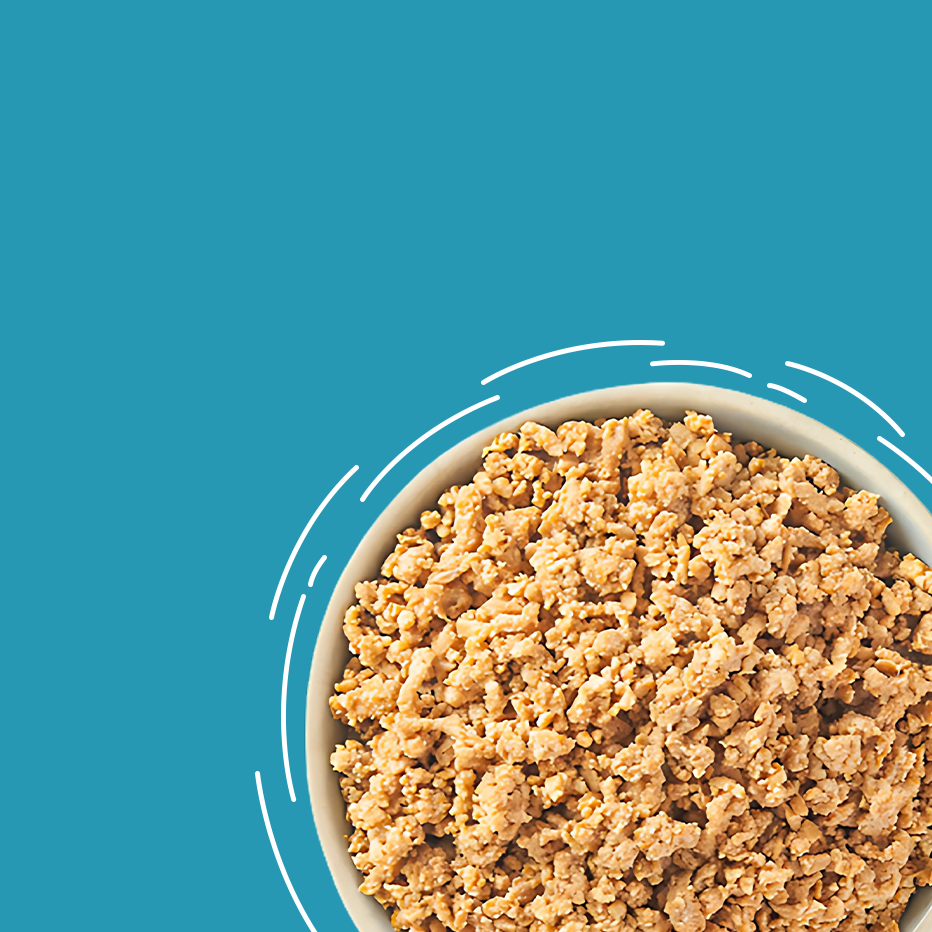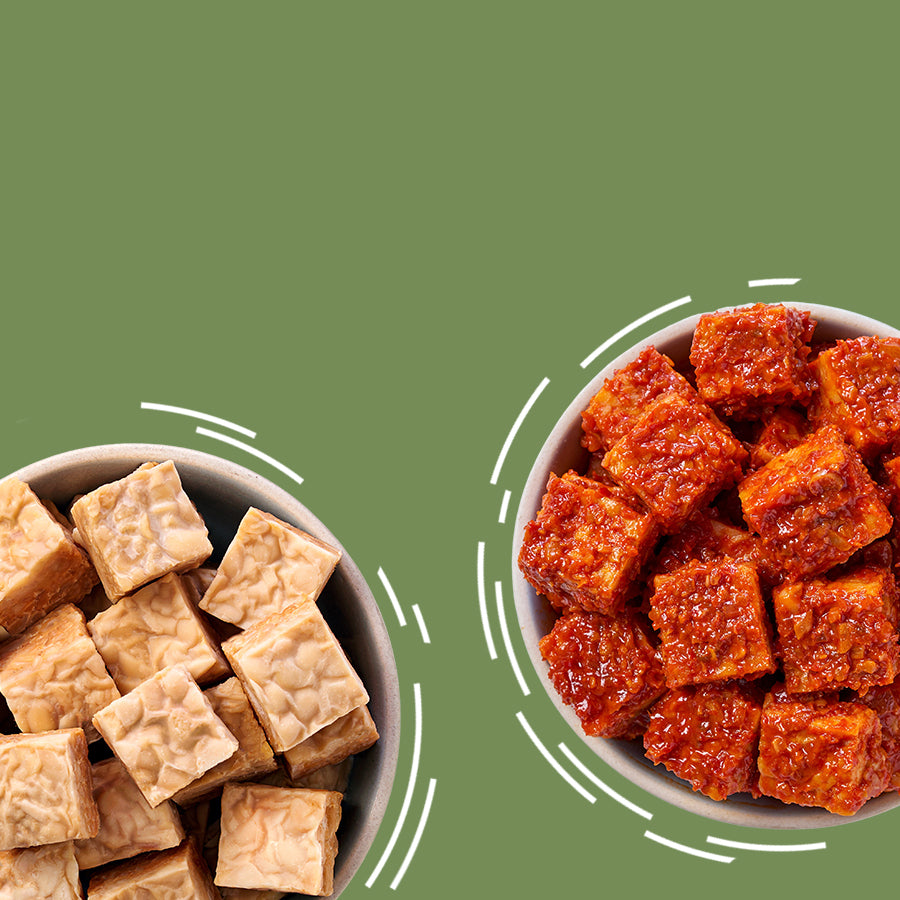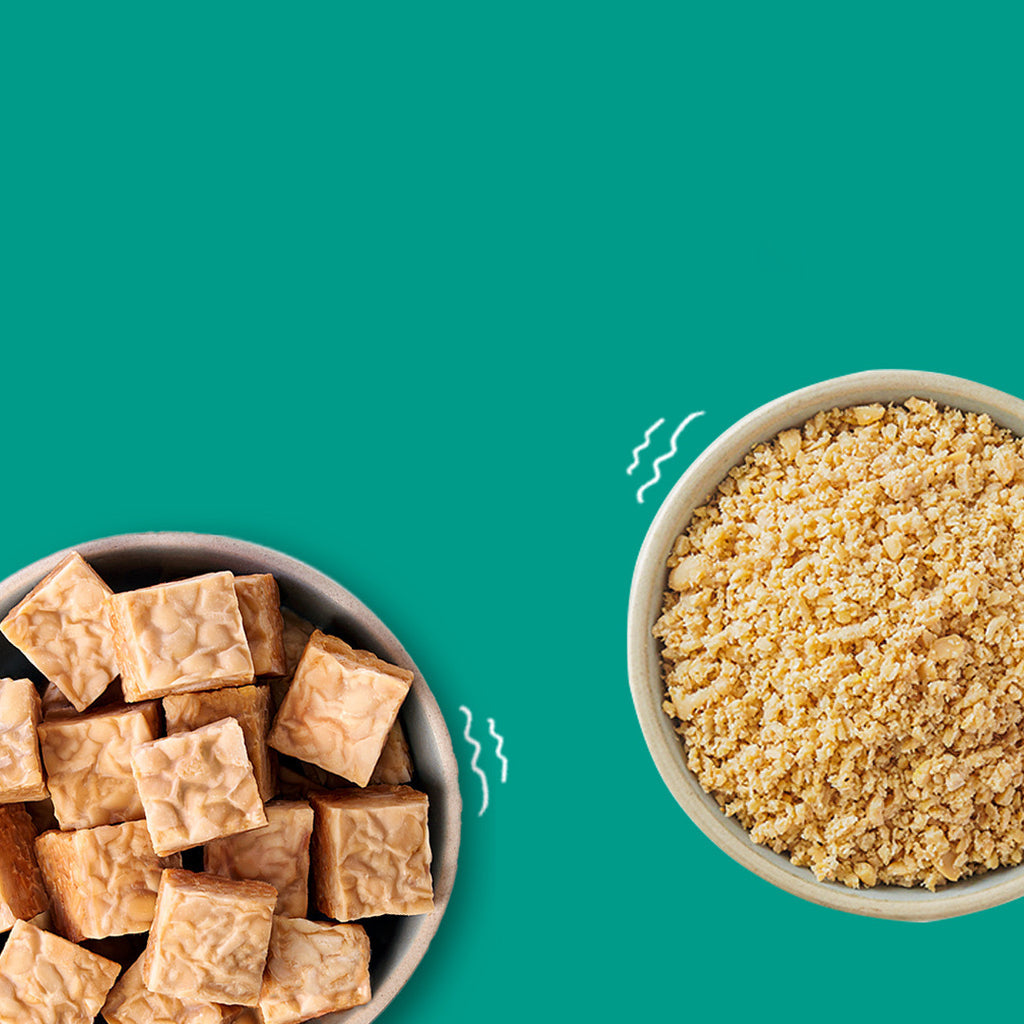Myth-Busting around Superfoods: Soy and Tempeh
Tempeh is a superfood that packs enough protein, vitamins, minerals and other nutrients that make it a complete dietary package. , However, the constantly arising myths and misconceptions around soy and tempeh consumption, in particular, make people ask, 'is tempeh healthy?’
These tempeh myths result from media speculations and are driven by the meat and dairy lobby ( there was heavy lobbying against soy when it was emerging as a great source of protein in the 90’s) . However, all of these speculations are not 100% accurate. Following is a list of some of the most common myths surrounding soy aconsumption and the truth behind those myths exposed.
Soy and Tempeh Myths Exposed
Myth: Soy and Tempeh are Tasteless

One of the most common tempeh myths is that tempeh is bland and tasteless. Soy products, particularly tempeh, have a dry and firm, hearty texture. They also carry a slightly nutty taste. Being fermented, Tempeh packs a lot of umami and is known to be a superstar ingredient.
Tempeh is a blank slate and due to its porous nature, soaks flavours beautifully. Tempeh lends body to any flavour that is added to it and improves the taste due to its umami. Because of this, as well as its ability to be used in a variety of ways, tempeh is an incredibly versatile ingredient for dishes ranging from curries to rolls to salads to tacos to stir-frys and much more.
Myth: Tempeh is too expensive

Another recent tempeh myth is that it is expensive. You can buy tempeh for a little over 100 rupees in India. Its price is comparable to store bought Paneer or meat and can be consumed on a regular basis without burning a hole in your wallet.
If you are looking for good quality tempeh at an affordable price, you can check out the natural tempeh cubes from Hello Tempayy. They also have a pre-marinated range of Tempeh that you can add to your bowls, appetizers or curries without marinating them. Moreover, all tempeh varieties listed at Hello Tempayy are made from 100% Non-GMO soybeans. Hello Tempayy also offers numerous combos that please everyone's taste buds and free shipping on all orders.
Myth: Soy is Bad for Health

Numerous studies have highlighted the nutritional benefits of including soy and Tempeh in our diet. However, a few media speculations and studies on potential health risks have raised controversy surrounding soy and tempeh. It has also made people question whether ‘is soy healthy?’
Soy and its products, particularly tempeh, are high in protein, vitamins, and minerals while having low sodium and carbohydrates. Additionally, because it is more compact than paneer (cottage cheese) and tofu, it packs more protein than these other vegetarian protein alternatives. A 3 ounce serving of tempeh contains the following nutrients:
- Calories: 162
- Protein: 15 grams
- Carbs: 9 grams
- Total fat: 9 grams
- Sodium: 9 milligrams (mg)
- Iron: 12% of the recommended daily intake (RDI)
- Calcium: 9% of the RDI
- Riboflavin: 18% of the RDI
- Niacin: 12% of the RDI
- Magnesium: 18% of the RDI
- Phosphorus: 21% of the RDI
- Manganese: 54% of the RDI
Recently, people have started associating soy with an increased risk of breast cancer due to ‘phytoestrogens’ being present. Phytoestrogens are plant compounds that are structurally similar to estrogen but are functionally very different and do not mimic the functions of the hormone ‘estrogen’ They also contain antiestrogen properties. Studies have shown no association between soy/tempeh and breast cancer; instead, they protect against it.
7 researchers examined more than two hundred studies and wrote in their conclusion ,“ The available scientific evidence supports the safety of phytoestrogens (Isoflavones) as typically consumed in diets based on soy , or containing soy products.
Soy and tempeh are also proven to have antioxidants that prevent chronic ailments. Soy also promotes good bone health due to high amounts of calcium. Tempeh also contains probiotics, which positively affect the gut microbiota when consumed.
According to research, a 3-month tempeh supplementation reduces glycated haemoglobin and triglyceride levels. Soy isoflavones were also linked to decreased insulin levels, lowered LDL and triglyceride levels, improved insulin resistance and sensitivity, reduced free androgen index in women with PCOS. Fermented soybean products such as tempeh were also proven to prevent or slow down the progress of Type 2 diabetes.
Myth: Soy, Tempeh Doesn’t Satisfy Hunger
Another soy/tempeh myth popular among the masses is that they will constantly feel hungry if they consume soy or tempeh. Studies have proven that high-protein diets aid in appetite control by increasing the feeling of satiety and decreasing hunger. 1 cup of tempeh (166 gms) contain 31 grams of protein making soy and tempeh perfect for hungry heads.
Research shows no significant difference between plant-based and meat-based protein regarding appetite control. Moreover, studies say that protein-rich diets promote thermogenesis (heat production), leading to increased metabolism that helps burn additional calories after each meal.
Conclusion
Numerous soy/tempeh myths have been clinically proven to be false. Whole, unprocessed forms of Soy such as tempeh, edamame, tofu are healthy and safe to consume. They are extremely rich sources of protein and are great additions to any diet.. Heavily processed forms of soy like soya chunks or textured vegetable proteins need to be avoided. Soy and Tempehare also affordable and readily available. However, people with specific conditions like soy allergies and impaired thyroid function should consult their doctor before consuming soy and tempeh. For your daily supply of tempeh, you can visit our website - Hello Tempayy, and choose our wide range of tempeh cubes and tempeh combos. Our orders are shipped free of cost so that you can be carefree and begin your plant-based nutritional journey in the comfort of your home.




















